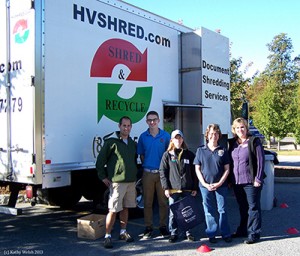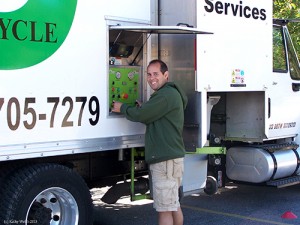Most of us have experienced the scam email from the friend/relative overseas in desperate need of money fast. In a strange but true experience, our family at HV Shred got the phone call. In textbook fashion, the scammers targeted a most vulnerable population–senior citizens. Seniors are most likely to be home to get these calls as well as perhaps not fully mentally present to think clearly and hang up. Fortunately, the seniors in our situation are still “with it”–instead of a sad story of lost money, we have a funny–“Can you believe that actually happened to us?” story.
On a typical run of the mill morning, Grandma got a phone call from her supposed grandson traveling in Peru. The supposed grandson had a cold (explaining why his voice may seem different) and really needed Grandma’s help to bail him out of a situation where he’d been detained by local authorities. The scam was quickly squashed when Grandpa grabbed the phone and asked “What is your last name?”-the response to which was a dial tone.
The moral of the story is–these scams are actually happening. Please educate all loved ones to be wary. Under no circumstances should anyone share personally identifying information over the phone or in an email when the communication is initiated by the requesting party. Hang up the phone! Delete the email! Keep on guard! It happens, but let’s make sure it doesn’t happen to us!
For more on best practices for identity theft prevention, please visit www.hvshred.com


